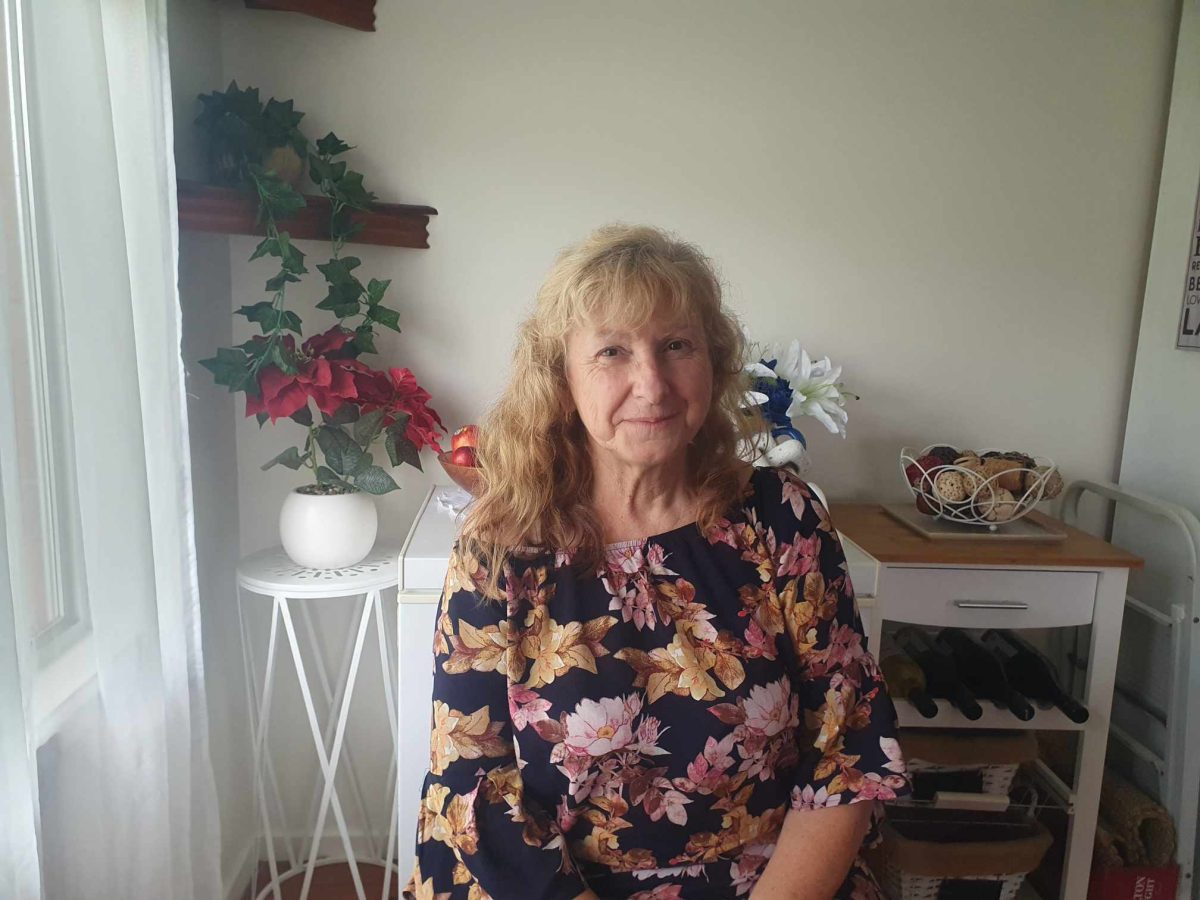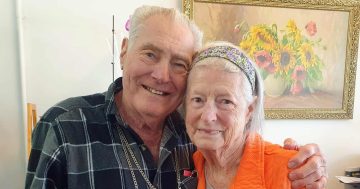
Carol Roberts was born deaf and cannot speak – but she wants the NDIS to hear her cry for help. Photo: Zoe Cartwright.
Dapto mum and grandmother Carol Roberts loves to socialise.
Whether she’s teaching and learning new languages to her colleagues at work, catching up with friends for a coffee or taking a holiday cruise, Carol loves to connect with others.
There’s just one challenge. Carol is profoundly deaf. She was born unable to hear, and as a result is also unable to speak.
Instead she uses sign language and her interpreter Sandra Dawes to communicate.
“I love everyone at work; I’ve been there for nine years now and they’re really friendly, great guys to work with,” she said.
“I love going to the gym with my friends; we get a cup of coffee or catch up over Skype and have a laugh.
“Sometimes I teach people a few basic signs, it’s easy, but I’m really happy when work gets an interpreter in for meetings.”
Everyday tasks can be tricky when Auslan is your first language.
As Australian sign language is not a written language and does not translate directly to English, Carol’s ability to read and write is limited.
Most banks don’t have staff who are able to sign, for example.
When Carol was in a minor car accident earlier this year, her insurer didn’t have anyone who was able to sign either.
For someone who cannot hear or talk, a phone call is out of the question.
Her interpreter Sandra explained.
“Auslan is very concrete, very black and white,” she said.
“It doesn’t have joining words, and there aren’t lots of words that mean the same thing like ‘beautiful’ and ‘gorgeous’ – we just have the word for beautiful and the emphasis changes its meaning.
“Especially in technical or legal documents it’s very common for Carol to come across words she doesn’t recognise, so she’s not comfortable to take medication or sign documents without someone who can interpret for her.”
When it comes to her social life, too, Carol can face challenges.
She wouldn’t get much value out of a wine tasting, for example, unless she had someone with her who was able to interpret the descriptions into Auslan.
Long-distance travel is tough without the ability to communicate with customs officials.
Closer to home, Carol was once locked in a stairwell at a shopping centre.
Unable to hear alarms or make herself heard, she was trapped for hours before a security guard found her.
To navigate these challenges Carol relies on her translator, Sandra, and a support worker.
Her translator has an official certification in Auslan, and is able to provide technical and accurate interpretations for things such as banking, insurance, and the medical appointments Carol had to attend when she had a battle with breast cancer in 2024.
Her support worker is able to provide general help with interpreting social conversations or grocery labels so Carol can manage her diabetes.
This help doesn’t come cheaply, however.
An interpreter costs $150 per hour, and while a support worker costs less, the service is not free.
Her support team estimates Carol needs about $70,000 in NDIS funding per year.
This would give her about eight hours a week of support from an interpreter or support worker, enabling her to manage her affairs and enjoy some time socialising in the community.
Her most recent NDIS package, however, allocated her $11,619.72.
Carol asked for a review, and it was increased to $29,130.24 for interpreting services exclusively.
A spokesperson for the National Disability Insurance Agency said the service continued to provide support to Carol, “including funding for interpreting services to support her participation in the community”.
Her new plan gives Carol access to about three hours of support a week – and if you’ve ever waited for an appointment that’s running late you know how quickly that can be chewed up.
Carol believes her funding is being kept low because the NDIS doesn’t understand the nature of her disability.
“Without an interpreter I’m stuck,” she said.
“I’m deaf; I can’t just pick up the phone and use my voice like hearing people, but I have rights. I need my interpreter.
“The NDIS was set up for people like me and I’m sick of hounding and fighting. I’m angry.
“I need enough funds for interpreting so I can have access to life. I want to be equal to people who are hearing.
“I’d love to go to Melbourne for a weekend and go on one of those hot air balloons, but I need an interpreter for the safety information.
“Hearing people don’t need that, they can just go.
“What does the future hold for me if I’m locked out of everything?”












